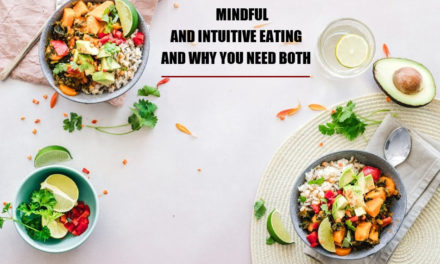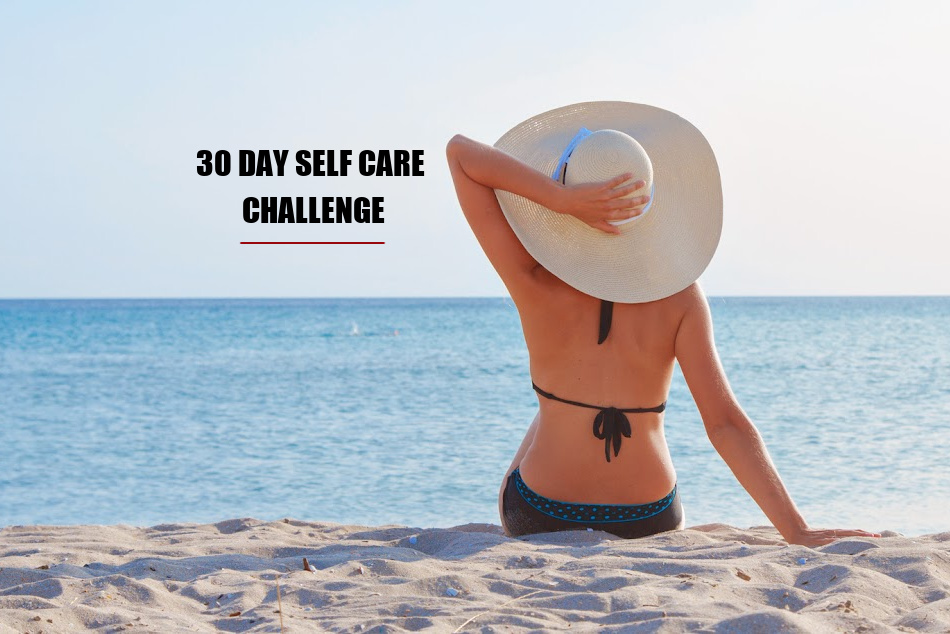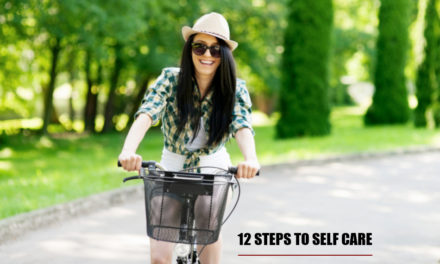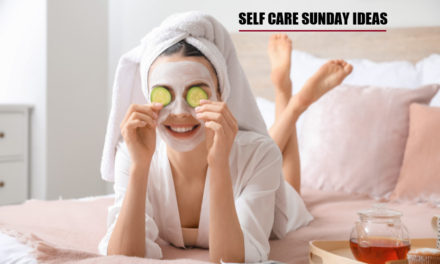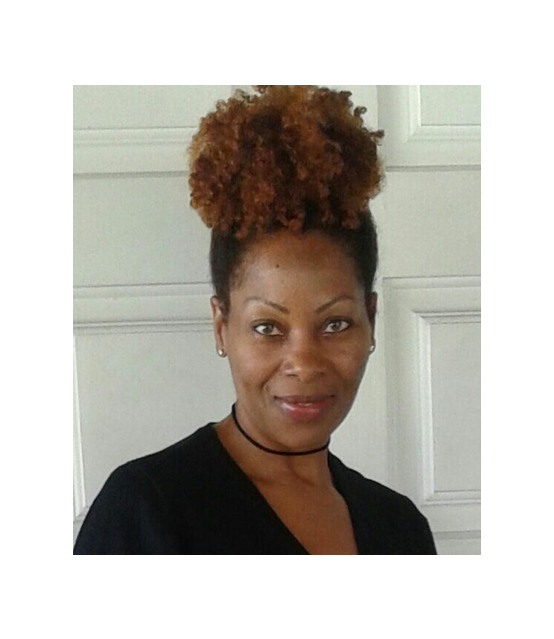Are you up for 30 day self care challenge? Self care is one of the most important things you can do for yourself, and it’s something that a lot of people struggle with.
That’s why we’re starting this challenge, to help you learn how to take better care of yourself.
It’s 30 days of intentional self-care, doing things for yourself that you know are good for your mind, body, and soul.
Over time your life will gradually become more balanced and less stressful.
Table of Contents
What Is The 30 Day Self Care Challenge?
The challenge will include a variety of different activities, all designed to help you relax, de-stress, and feel good.
30 day self care challenge is 30 days of intentional self-care. You’ll find that you’re calmer during difficult situations.
And, you’ll be better able to handle life’s curveballs when they come our way. This is because you’ll have built up an inner reserve tank filled with love and strength. This comes from all the little things you do each week as part of our 30-Day Self Care Challenge.
So if you’re ready to take better care of yourself, let’s get started.
Why Do A 30 Day Self Care Challenge?

There are so many benefits to doing a 30 day self care challenge.
When you take the time to focus on your own well-being, it can help you feel happier, more relaxed, and more energetic.
A 30 day self care challenge is the perfect way for you to jumpstart a more holistic, healthy lifestyle. When you make self care a priority, you’ll often find that your overall mood improves.
When you’re taking care of yourselves physically, mentally, and emotionally, it can lead to increased feelings of happiness and contentment.
Plus, when you’re feeling good on the inside, it often shows on the outside too.
How To Do A 30 Day Self Care Challenge
1. Set realistic goals: When setting goals for your 30-day self-care challenge, it’s important to be realistic. Choose activities that you know you can realistically do on a daily basis, and don’t try to bite off more than you can chew.
2. Make a plan: Once you’ve decided on your goals, it’s time to make a plan. Decide how you will fit self-care into your daily routine, and make sure to schedule it in like you would any other important activity.
3. Be consistent: One of the most important things about a 30-day self-care challenge is consistency. In order to see results, it’s important to stick with your plan and do your chosen activity every day for 30 days.
4. Keep a journal: Throughout your 30-day self-care challenge, it can be helpful to keep a journal. This will allow you to track your progress and reflect on your experience at the end of the challenge.
5. Reward yourself: Finally, don’t forget to reward yourself for completing your 30-day self-care challenge! Give yourself a pat on the back, and celebrate your accomplishment in a way that feels good to you.
Benefits Of A 30 Day Self Care Challenge
There are many benefits of doing a 30-day self-care challenge, including:
1. Improved mental health: When you make self-care a priority, you’ll notice an improvement in your mental health. This is because self-care helps to reduce stress and anxiety, and can also increase happiness and satisfaction with life.
2. Improved physical health: Taking care of yourself physically is also important for your overall health. When you do a 30-day self-care challenge, you may find that you have more energy, better sleep, and improved overall physical health.
3. Increased self-awareness: One of the benefits of a 30-day self-care challenge is that it can help you to become more aware of your thoughts, feelings, and needs. This increased self-awareness can lead to improved decision-making and enhanced well-being.
4. Improved relationships: When you make self-care a priority, it can also lead to improved relationships with others. This is because taking care of yourself helps you to be more patient, kind, and understanding with others.
5. Greater productivity: Although it may seem counterintuitive, taking care of yourself can actually lead to greater productivity in all areas of your life. This is because when you feel good mentally and physically, you have more energy and focus to put toward your goals.
How Does The Challenge Work?

The 30 Day Self Care Challenge is a great way to jumpstart your journey to better self-care.
Best of all it’s simple and doable so why not give it a go?
Here’s how the 30 Day Self Care Challenge works:
If you’re ready to commit to taking better care of yourself for 30 days, you’ll do one small self-care activity each day.
That’s it! Just one thing to focus on each day.
30 Day Self Care Challenge Ideas
Day 1:Wake Up 30 Minutes Earlier
It’s no secret that we all would like to have more time in our day. Believe it or not, waking up just 30 minutes earlier can make a big difference in your day.
You can get a head start on your day and get things done that you wouldn’t have been able to do if you slept in.
Spend that time doing something for yourself. This can be anything from reading, meditating, writing in a journal, or just sitting outside and enjoying the fresh air. Make sure to do something that truly relaxes you.
You’ll also have more time to get ready for work, eat a decent breakfast, and get to your job on time and you can avoid the rush of traffic and crowds that often accompany the start of the workday.
Day 2: Set Up A Fitness Plan

Today’s self care challenge is to create a fitness plan. When it comes to getting in shape, there’s no one-size-fits-all approach.
But, there are some basic guidelines you can follow to create a fitness plan that’s right for you. The first step is to set some goals.
What do you want to achieve? Do you want to lose weight, gain muscle, or just get more active? Once you have a goal in mind, it’s easier to come up with a plan that will help you reach it.
Next, you need to figure out what kind of exercise is right for you. If you’re new to working out, start with something simple like walking or jogging.
If you’re more experienced, consider trying more challenging workout routines.
Day 3: Learn Something New
There are tons of reasons why you should learn something new. Perhaps the most important reason is that it helps to keep your mind sharp and active. It can also help to reduce stress and anxiety and improve your mood and mental well-being.
When you learn new things, your brain has to process new information and create new connections, which can help keep your mind healthy and functioning well.
This can be anything from reading about a new topic, taking an online course, learning a new skill, or starting to learn a new language just to name a few.
When you challenge yourself and step outside of your comfort zone and learn something new, you may find that you feel more confident and capable which can give you a feeling of accomplishment.
Day 4: Get Out In Nature
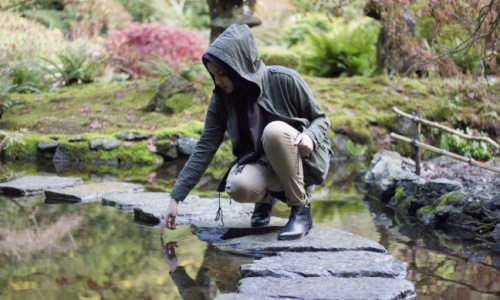
Take some time today to get out in nature. Spend at least 30 minutes outside, surrounded by fresh air and greenery.
Connect with the natural world and get grounded in the present moment. Experience the beauty and peace of nature, and let go of stress and worry.
Breathe in the fresh air, listen to the sounds of the birds, and feel the sunshine on your skin. Being in nature can help reduce stress, anxiety, and depression, and can also increase levels of happiness, focus, and creativity.
Take a walk in the park, sit by the lake, or just spend some time in your own backyard. Let nature nurture your soul and restore your sense of well-being.
Day 5: Disconnect from Technology
This is a difficult task for many of us. It’s hard to go from being constantly connected to the internet to suddenly being disconnected.
However, it’s necessary to take the time to unplug from technology in order to focus. This means no phone, no computer, and no TV.
When you’re not constantly checking your phone or refreshing your social media feeds, you can devote your full attention to what you’re doing.
Additionally, disconnecting from technology can help reduce stress levels. Checking your devices constantly can add to anxiety, but taking a break from them can help you relax.
Finally, unplugging from technology can give you more time to enjoy activities or hobbies that don’t involve screens. This can help promote a healthier balance in your life.
Day 6: Do Something Nice For Someone

Showing kindness to others is always a good thing and it never goes out of style.
Kindness is a good way to show someone that you care about them and it’s also a good way to make friends.
Performing acts of kindness is a win-win. Not only does it make the other person feel good, but they also make you feel pretty good too. It’s a great way to boost your own mood and can even help reduce stress levels.
There are many ways to show kindness. You can buy a homeless person a meal, cook a meal for a friend or family member, or donate to charity.
Even simply lending a listening ear, saying kind words, being friendly or giving a stranger a compliment. The list is endless.
It’s easy to be kind and it’s a great way to make friends and build relationships Just think about how you would want to be treated and treat others that way.
If you see someone who looks like they could use a friend, reach out and talk to them. You never know, you might just make their day.
Day 7: Treat Yourself To Something Special
There is no better way to feel good than by treating yourself to something special. When you do something nice for yourself, it makes you feel happy and satisfied. It’s a great way to show yourself some love and care.
There are many things you can do to treat yourself and it doesn’t need to be a shopping spree. You could buy yourself a new outfit, buy a new book, get a massage, or go on a weekend getaway.
Whatever makes you happy is the perfect treat for you. The key is to find something that you really want and will make you feel good.
Treating yourself to something special is a great way to boost your mood and self-esteem. It can also help you feel more relaxed and positive.
Day 8: Declutter Your Space

Decluttering your space can be an extremely rewarding experience. Not only will your home or office be more organized and functional, but you’ll also have a newfound sense of calm and control over your surroundings.
Here are a few tips to help you get started:
1. Tackle one area at a time. Trying to declutter your entire home or office in one day is overwhelming and can easily lead to frustration.
2. Simplify your belongings. This means getting rid of duplicate items, items that you no longer use or need, and anything else that is taking up unnecessary space.
3. Create a decluttering schedule. Once you’ve decluttered one area, it’s important to maintain the decluttered state by creating a decluttering schedule. This can be as simple as setting aside 15 minutes each day to declutter your space.
4. Invest in storage solutions. Find ways to store your belongings in a way that is both functional and aesthetically pleasing. There are a variety of storage solutions available, so take some time to find the ones that work best for you and your space.
Day 9: A Day Of Healthy Meals
Healthy meals don’t have to be boring or expensive but can be delicious and nutritious. There are plenty of recipes that are both healthy and delicious.
This doesn’t mean you have to diet or deprive yourself, either, but rather make a conscious effort to nourish your body with good food.
So, what are some tips for eating a healthy meal? First, aim to include a variety of food groups in your meal. This means including fruits, vegetables, whole grains and proteins.
Second, make sure your portions are appropriate. A good rule of thumb is to fill half of your plate with fruits and vegetables, one-quarter with proteins, and one-quarter with whole grains or starchy vegetables.
Finally, don’t forget to drink plenty of water you should aim for eight glasses a day.
Day 10: Be Grateful

When you focus on being grateful, it changes your outlook on life. No longer are you looking at the negative aspects, but instead you’re finding the good in every situation.
This change in perspective is not only beneficial for your mental health, but it can also improve your physical well-being.
Gratitude has been linked to lower stress levels and even a stronger immune system. So why is it that gratitude has such a positive impact on your life?
One reason may be that gratitude allows you to focus on the good things that are happening, instead of the bad. This helps to keep our minds positive, which in turn has a positive effect on our bodies.
Try to focus on the things you’re grateful for. It may just change your whole outlook on life.
Related: Gratitude is a must
Day 11: Sip On Your Favorite Herbal Tea
The medical use of herbal teas can be traced back to Ancient China and Greece. Today, they’re popular worldwide for their medicinal properties and flavors.
Herbal teas are believed to help you with a variety of health problems, including insomnia, anxiety, and headaches. They are also thought to improve digestion and circulation.
There are many different types of herbal tea available. Some of the most popular include chamomile, lavender, mint, peppermint and ginger. You can enjoy them hot or iced and they’re usually caffeine-free.
So take a break from your usual coffee drinks and sip on some of your favorite herbal tea.
Day 12: Take A Break From Social Media

It can be hard to take a break from social media, but it’s important to take time for yourself. This means no Facebook, Twitter, Instagram, Snapchat, Tik Tok, and any other social media platform that exists, for at least 30 minutes.
Social media can be a great way to stay connected, but it can also be a major source of stress. Take a break from checking your feeds and give yourself some peace of mind.
It can be tough to take a break from social media, but it’s worth it. Here are a few reasons why:
- You’ll have more time to focus on other things.
- You’ll be less likely to compare yourself to others.
- You’ll be less stressed out.
- You’ll be more productive.
- You’ll feel more connected to the people around you.
Day 13: Do Something Creative
Creativity is one of the most important aspects of our lives. It allows you to express yourself, think outside the box, and come up with new ideas.
And when it comes to creativity, there are no bounds. You can be creative in any way that you want to be.
One great way to tap into your creative side is to do something creative every day. This can be anything from it’s painting, writing, dancing, drawing, playing music, or cooking.
Committing yourself to do something creative every day can really help you unleash your inner artist.
Not only that, but it can also help improve your problem-solving skills and boost your confidence.
Day 14: Practice Mindfulness
When it comes to improving mental well-being, mindfulness might be one of the most popular interventions out there.
Mindfulness is a form of meditation that focuses on being aware of the present moment and accepting thoughts and feelings without judgment.
There is a lot of research to suggest that mindfulness practice can be beneficial for mental health, including reducing stress and anxiety, improving mood and sleep, and helping to manage chronic conditions such as pain and stress.
There are plenty of ways to practice mindfulness. Set aside time each day for mindfulness practice. Even just 5-10 minutes can make a difference.
Mindfulness can help reduce stress and anxiety, and it’s something you can do anywhere, anytime. You can try a mindfulness activity such as yoga, or tai chi. Pay attention to your breath and focus on the present moment.
Day 15: Exercise For 30 Minutes
When it comes to exercise, there are a lot of misconceptions. You might believe that if you work out hard enough, you can eat whatever you want.
Or you may think that you have to spend hours at the gym in order to see results. The truth is that any amount of exercise is better than none at all.
And you certainly don’t need to slave away at the gym for hours on end. In fact, even a moderate amount of exercise can help improve your health and well-being.
So what should you do? The best approach is to start small and gradually increase the amount of exercise you do each week. Start by taking a brisk walk for 30 minutes each day.
Or try cycling to work or taking the stairs instead of the lift. Once you’ve built up your fitness levels, you can start doing more strenuous activities like running, running, swimming, or doing a workout video at home.
Taking some time to move your body and get your heart rate up will help to boost your energy and mood.
Day 16: Meditate or Pray
Taking some time to center yourself can be a very beneficial use of your time. These are important practices in the process of self-improvement, as it allows you to connect and focus on your relationship with God along with your innermost thoughts and feelings.
This can help to quiet your mind and helps you to deal with stress and anxiety helping you to achieve a state of relaxation.
When you pray and meditate, it can help you to identify any areas of your life that need improvement, and it can also give you guidance on how to make those improvements.
The next step is to take action. This means making changes in your life that will help you to achieve your goals. It might mean quitting a bad habit, or starting a new one.
It could also mean making changes in your relationships, or your job. Whatever it is, taking action is the only way to make progress.
Both of these practices can be beneficial in helping us to lead more peaceful and fulfilling lives.
Day 17: Journal For 15 Minutes
Journaling is a great way to get your thoughts out there without having to worry about what other people will think.
It’s a form of self-expression that can help you work through your thoughts and feelings, and it can also be a great way to record your thoughts and memories.
When journaling, it’s important to be honest with yourself. Getting everything out on paper can help you to feel more clarity and peace of mind.
Don’t try to write things that you don’t mean or that aren’t true. Write what you’re feeling in the moment, and don’t worry about whether or not it makes sense. Just let it all out.
Journaling can help you process your thoughts and feelings and is also a great way to relieve stress and anxiety.
It can also help you to track your progress and goals and reflect on your day-to-day life.
Day 18: Read For 30 Minutes

Make some time to relax and escape into a good book. Reading books is one of the oldest and most cherished pastimes in the world.
Here are some reasons why you should read a book.
1. When you read a book, you can completely immerse yourself in the story. You forget about your troubles and enter another world. This is a great way to relax and de-stress after a long day.
2. During reading, you’ll come across new words and phrases. These words become part of your vocabulary and help improve your communication skills.
3. When you read, you are exposed to different viewpoints and opinions. This can help you develop a better understanding of the world around you, and make more informed decisions.
4. The more you read, the better you become at concentrating and focusing on a task. This is an important skill in both your personal and professional life.
5. Reading has been shown to reduce stress levels significantly as well as improve your mood. So next time you’re feeling overwhelmed, try reaching for a book instead of scrolling through social media.
Day 19: Take A Relaxing Bath
Taking a relaxing bath can be a great way to de-stress. It can do wonders for your body and mind.
A good, long soak in the tub can help relieve tension headaches, stress, and anxiety, and improve your overall mood.
Soaking in a warm bath can also help improve circulation, soften your skin, and relax tired muscles. If you’re looking for a way to take a break, then take a relaxing bath.
You can add some soothing aromatherapy oils, light some candles or even listen to calming music. Whatever helps you to relax, go for it! The key is to take some time out for yourself and just let go.
Day 20: Declutter Your Mind
When it comes to decluttering your life, decluttering your mind should be one of your top priorities. By decluttering your mind, you can free up space to focus on the things that are important to you.
Start by identifying the things that are distracting you from your goals. Are there certain thoughts or memories that are preventing you from focusing on the present? If so, it’s time to get rid of them.
Make a list of the things that make you happy and focus on those things. When you’re bogged down by negative thoughts, it can be helpful to remind yourself of the things that make you happy.
Write down a list of things that make you happy and refer to it when needed.
Meditation can help to relax your body and mind, making it easier to declutter your thoughts or talk to someone about what’s on your mind.
Talking openly and honestly about your feelings can help you to understand them better and find ways to deal with them more effectively.
Day 21: Spend Time Coloring
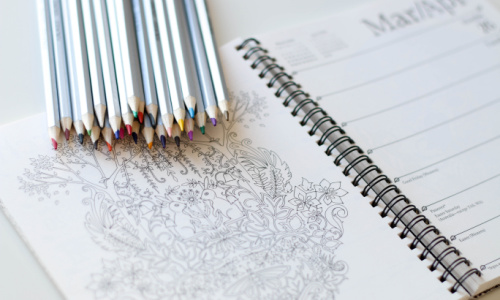
Coloring is a great way to relax and de-stress. It’s a fun activity and it doesn’t require any special skills or talent.
In fact, the only thing you need is some free time and a few coloring books or sheets. So take a break from your everyday responsibilities and spend some time relaxing with a good old-fashioned coloring session.
Coloring can help you to forget about your stressors and focus on something else for a while. Plus, It’s also a great way to express your creative side.
So, whether you’re using coloring books or sheets, there is a wide variety of designs and scenes to choose from. Grab some coloring supplies, find a design that you love, and let the stress melt away.
Day 22: Create A Vision Board
A vision board is a collage of images and words that represent what you want to achieve in life. It’s a fun and creative way for you to focus on your goals and dream big.
There are no rules for creating a vision board. You can use magazines, photos, quotes, and anything else that speaks to you. The important thing is that your vision board reflects your deepest desires and aspirations.
Here’s how you can create your own vision board:
1. Gather images and words that inspire you. This can be done by collecting magazine cutouts, printing out pictures from the internet, or writing down quotes that resonate with you.
2. Create a collage of your images and words on a large piece of paper or poster board. There are no rules here just let your creativity flow.
3. Hang your vision board in a place where you will see it every day. This will help to keep your goals top of mind and increase your chances of achieving them.
4. Take action steps towards your goals. A vision board is a great way to get clear on what you want, but it’s only one part of the equation. You also need to take action steps towards your goals in order to make them a reality.
Day 23: Dance

Dancing is a good way to get your body moving and to have some fun. It’s also a great way to release any stress or tension that you may be feeling.
It can also improve your cardiovascular health, and increase your strength and flexibility.
When you dance, your body releases endorphins, which are hormones that make you feel good.
You don’t need to have a dance partner to start moving your feet to the beat, so just put on your favorite song and start moving. You might be surprised by how much fun you have.
Day 24: Start A New Hobby
When it comes to starting a new hobby, there are a few things to keep in mind. First of all, make sure your hobby is something you’re interested in and that you will enjoy, and that brings you happiness.
Secondly, start small and don’t overdo it. There’s no need to go overboard when you’re first getting started because you don’t want to get burned out right away.
And, make sure you have the time and resources to devote to the new hobby. A simple plant in your garden or a few sketches in your sketchbook can be really rewarding.
If you’re looking for inspiration, here are a few ideas:
- Gardening
- Painting or drawing
- Playing a musical instrument
- Crafting or sewing
- Cooking or baking
- Photography
- Traveling
- Collecting
- Volunteering
Day 25: Start A Bedtime Routine
One of the best ways to start winding down for the night is to establish a bedtime routine. A routine is a great way to ensure that you get a good night’s sleep.
This can involve simple activities like washing your face, brushing your teeth, and changing into pajamas.
Once you’ve completed these basic tasks, you can start to relax by reading a book or listening to calm music. Doing the same things every night will signal to your body that it’s time to start preparations for sleep.
By following a set of specific steps before bed each night, you can relax and prepare your body and mind for rest.
Day 26: Get 7-8 Hours Of Sleep
It’s no secret that getting a good night’s sleep is crucial for your health and well-being. There are many reasons why you might have difficulty sleeping, from stress and anxiety to health problems and noise pollution.
Sleep is important for restoring energy, reducing stress, and boosting immunity. So, if you’re struggling to get the recommended 7-8 hours of shut-eye each night there are plenty of things you can do to help get a good night’s sleep.
Here are some tips for creating a bedtime routine:
1. Go to bed and wake up at the same time every day, even on weekends. This will help your body get into a rhythm and make it easier to fall asleep.
2. Avoid watching TV or using electronic devices in bed. The blue light from these screens can disrupt your natural sleep rhythm.
3. Avoid caffeine and alcohol before bed.
4. Consider using relaxation techniques like listening to calm music, reading or aromatherapy to help you wind down before bedtime.
5. Keep your bedroom dark, quiet, and cool.
6. Avoid screen time (phones, laptops, television) in the hour leading up to sleep.
Related: Practical Tips To Get Better Sleep
Day 27: Go On A Date

When was the last time you had a date? If you can’t remember, then now is a good time. There are many reasons why you should go on a date. For one, dating can help you improve your communication and social skills.
It can also help you learn more about yourself and the person you’re with, you’ll get to know more about what makes you tick and what your likes and dislikes are.
On top of that, dating can help boost your self-confidence and make you feel more loved.
Additionally, you’ll also need to learn how to read body language and understand what the other person is thinking or feeling.
By doing this, you’ll be able to better connect with that person date and build a stronger relationship.
There are all sorts of different types of dates that you could go on. For instance, a romantic night out with your significant other, going to an amusement park with your family members, going hiking or skiing with your friends, or having a girls night out.
Do something that makes you happy and let loose.
Day 28: Plan Your Next Vacation
When it comes to planning your next vacation, there are a lot of things to consider. But, one of the most important thing is making sure that you pick a destination that’s right for you.
There are so many amazing places for you to explore and it can be tough to choose just one. But with a little bit of planning, you can narrow down your options and find the perfect place for your next vacation.
You’ll want to start planning well in advance to get the best deals and you’ll have plenty of time to save up for your trip. You’ll be able to avoid the peak season crowds and enjoy a more relaxed vacation. Loo
Do some research and come up with a list of potential destinations, then start booking flights and hotels. Looking for inspiration? Here are a few ideas:
- Mexico
- Italy
- Dubai
- Greece
- Jamaica
- South Africa
- St. Lucia
- Spain
Day 29: Walk A Nature Trail
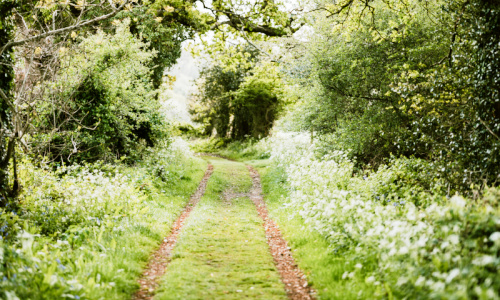
Walking nature trails is not only good for your physical health, but also for your mental health. In fact, recent studies have shown that nature walks can be just as beneficial as antidepressant medications.
These trails offer a variety of different landscapes and terrains to explore, which can make your walk more interesting and enjoyable and can help you improve your fitness level and cardiovascular health.
Before you head out on a walking nature trail, it’s important to do your research first. Not all trails are appropriate for all levels of walkers, so be sure to find one that fits your fitness level and interests.
Be sure to wear comfortable shoes and clothing and once you’re out on the trail, take your time and enjoy the scenery.
As you walk, pay attention to your surroundings and look for things that interest you. If you see a beautiful flower or plant, take a moment to appreciate it. If you hear birds singing, take a moment to listen.
And if you come across a breathtaking view, make sure to stop and enjoy it for a while.
When you’re finished with your nature walk, take a few minutes to reflect on what you’ve seen and experienced. Nature walks can be a great way to reduce stress and improve your mood.
Day 30: Reflect On Your Progress
Take a look back at your progress. Think about how you’ve been feeling over the past 30 days.
Have you been:
- More calm and relaxed?
- More mentally stimulated?
- More productive?
- More positive?
- Which of these ideas will you keep as a regular part of your day-to-day life?
Take some time to appreciate the progress you’ve made and all that you’ve accomplished.
Congratulations- you did it!
Conclusion For 30 Days of Self Care
This challenge was created to help you take a step back and focus on your well-being.
The goal is to provide you with the tools and resources you need to make self care a habit so that you can live a happier, healthier life.
No matter what 30-day self-care challenge you decide to do, the most important thing is to just get started.
Just be realistic, make a plan, be consistent, and reward yourself for your hard work. And most importantly, don’t forget to have fun.
Are you up for the challenge? Comment below!










